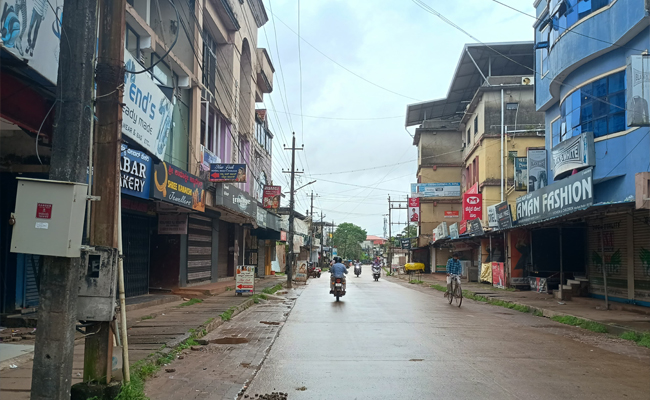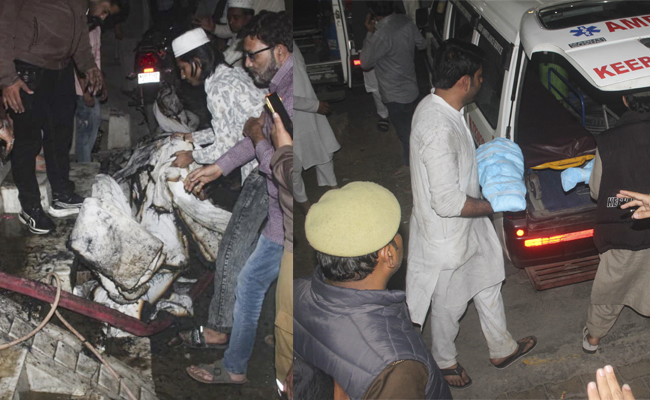Bhatkal: Following the massive protest organised by Majlis-e-Islah wa Tanzeem on Monday, the Muslim community in Bhatkal observed a complete bandh on Tuesday, expressing their resentment over the blasphemous remarks made by Yati Narsinghanand against Prophet Mohammed.
In response to the call for the bandh, all Muslim-owned shops and businesses in the city remained closed from Tuesday morning and is expected to remain closed till Wednesday morning. The shutdown was a unified show of protest, as the community voiced their demand for immediate action against Narsinghanand.
While the markets in Muslim-dominated areas and main market remained quiet, shops and businesses owned by non-Muslims were seen operating normally. The bandh call, made by the Tanzeem during Monday's protest, aimed to intensify pressure on authorities to act against Narsinghanand, who has a history of making offensive remarks and has been accused of spreading communal hatred.
On Monday, Maulana Abdul Aleem, along with other leaders, had strongly condemned the statements made by Narsinghanand, calling him an "anti-social element" who is against the pluralistic and democratic values of India. He emphasized that Prophet Mohammed was a symbol of peace and harmony and that insulting him disrupts societal peace. Other leaders, like Mohammed Kunhi of Shanti Prakashan and Tanzeem President Inayathullah Shabandri, also demanded strict legal action, warning that the protests would escalate if the government failed to take appropriate steps.
The bandh was observed peacefully across the city, with no reports of incidents or confrontations. The memorandum submitted on Monday, demanding Narsinghanand be charged under stringent laws such as the UAPA, continues to be the focal point of the community’s demands.








Let the Truth be known. If you read VB and like VB, please be a VB Supporter and Help us deliver the Truth to one and all.
Shivamogga (PTI): A 16-year-old boy was murdered outside a government school in Sulaebailu here, sparking tension in the area, police said on Tuesday.
Following the incident, a large police force was deployed in the city.
The incident occurred after Sanketh (16), an SSLC student of the Government High School at Uragadooru, attended a special class ahead of examinations.
Superintendent of Police Nikhil B told reporters that Sanketh intervened in an argument involving a group of boys outside his school.
“Some friends who were known to him — they had earlier studied in the same school — were involved. They are also minors. They hit him with their hands. Immediately after being struck, he collapsed. After he fell, by the time he was taken to the hospital, we came to know that he had died,”
"... he was struck near the chest. Due to that blow, he collapsed on the spot,” the SP said.
Two minors have been taken into custody in this connection.
“We are also gathering information about others involved in the incident. Whoever is found to be involved, we will initiate legal action against them as well,” the official added.
On the possible motive, the SP said the exact cause is yet to be ascertained.
“We do not have complete information about that. Once we conduct a detailed inquiry, we will know. Some people are saying it may have been over a trivial matter. However, we cannot confirm that at this stage,” he said.
The incident took on a communal undertone, prompting authorities to deploy heavy police reinforcements across the city to maintain order and prevent escalation.
BJP MLA from Shivamogga, S N Channabasappa, also visited the hospital.





